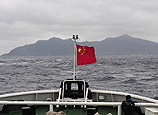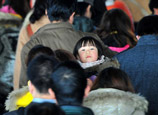
US agriculture giant Monsanto Company, for instance, has faced many legal disputes with farmers over seed patent and planting issues in recent years, as well as criticism for genetically modified crops.
Problems aside, Du noted that if local governments can really protect the interests of rural areas and farmers, the involvement of capital and companies could help ensure food safety, preserve the farming workforce and improve the efficiency of the agricultural industry.
Li Changping, a consultant for Hong Kong-based charity Oxfam International, told the Global Times Saturday that he thinks companies can improve farming organization and provide needed farming technologies.
China's focus on large-scale farming has also been interpreted as an attempt to protect grain security by the nation with the world's largest population.
China achieved increasing grain output for a ninth consecutive year in 2012, setting a record of about 589 million tons.
But imports also rose to 77 million tons.
Zheng Fengtian, associate dean from the School of Agricultural Economics and Rural Development at Renmin University of China, told the Global Times that the 77-million-ton import volume includes soybeans, while "the self-sufficiency rate of rice, wheat and corn, the three major food crops in China, are all above 97 percent."
But Du said, "In my opinion, if companies dominated agricultural product prices, which would rise for sure, Chinese consumers would be much likelier to buy more of cheaper imported products."

















 The new generation of 'best paid' jobs
The new generation of 'best paid' jobs


![]()
